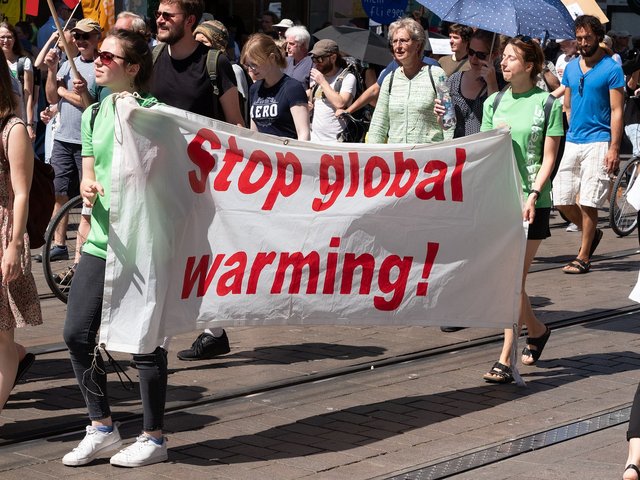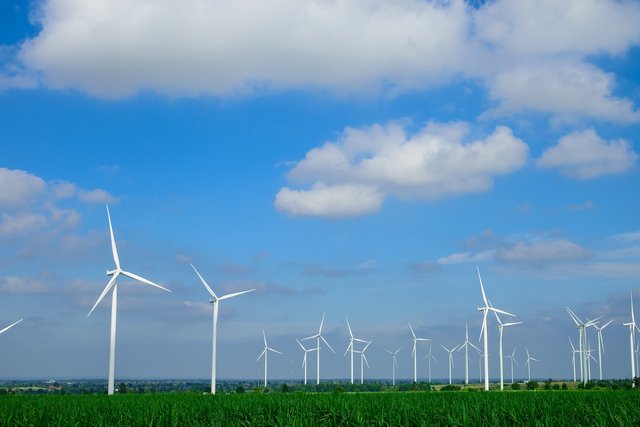🔥 Global warming 🔥
I’m @sajid11. From Pakistan
Assalam o Alaikum dear all, hope you guys doing well.the topic is about "Global warming".I would like special thanks to steem for bangladesh to organise such a beautiful contest.
" Global warming " |
|---|
Briefly express your knowledge about global Warming. |
|---|
Global warming is the long-term warming of the planet's overall temperature. Though this warming trend has been going on for a long time, its pace has significantly increased in the last hundred years due to the burning of fossil fuels.
Since the Industrial Revolution, the global annual temperature has increased in total by a little more than 1 degree Celsius, or about 2 degrees Fahrenheit. Between 1880 the year that accurate recordkeeping began and 1980, it rose on average by 0.07 degrees Celsius (0.13 degrees Fahrenheit) every 10 years. Since 1981, however, the rate of increase has more than doubled: For the last 40 years, we’ve seen the global annual temperature rise by 0.18 degrees Celsius, or 0.32 degrees Fahrenheit, per decade.A planet that has never been hotter. Nine of the 10 warmest years since 1880 have occurred since 2005 and the 5 warmest years on record have all occurred since 2015. Climate change deniers have argued that there has been a “pause” or a “slowdown” in rising global temperatures, but numerous studies, including a 2018 paper published in the journal Environmental Research Letters, have disproved this claim. The impacts of global warming are already harming people around the world.
Now climate scientists have concluded that we must limit global warming to 1.5 degrees Celsius by 2040 if we are to avoid a future in which everyday life around the world is marked by its worst, most devastating effects: the extreme droughts, wildfires, floods, tropical storms, and other disasters that we refer to collectively as climate change. These effects are felt by all people in one way or another but are experienced most acutely by the underprivileged, the economically marginalized, and people of color, for whom climate change is often a key driver of poverty, displacement, hunger, and social unrest.
We ourselves are responsible for the rise in surface temperature and explain why. |
|---|
The potential for human activities to increase the temperature of the Earth through greenhouse gas emissions has been described and calculated for over a century. Volumes of scientific research across multiple scientific disciplines agree that humans are warming the climate, and the 2013 IPCC Fourth Assessment Report states, "Human influence on the climate system is clear. This is evident from the increasing greenhouse gas concentrations in the atmosphere, positive radiative forcing, observed warming, and understanding of the climate system." There is overwhelming evidence that human activities, especially burning fossil fuels, are leading to increased levels of carbon dioxide and other greenhouse gases in the atmosphere, which in turn amplify the natural greenhouse effect, causing the temperature of the Earth's atmosphere, ocean, and land surface to increase.
-Human activities, particularly the combustion of fossil fuels, are altering the climate system.
-Human-driven changes in land use and land cover such as deforestation, urbanization, and shifts in vegetation patterns also alter the climate, resulting in changes to the reflectivity of the -Earth surface (albedo), emissions from burning forests, urban heat island effects and changes in the natural water cycle.
-Because the primary cause of recent global climate change is human, the solutions are also within the human domain.
-Because we understand the causes of climate change, that paves the way for effective solutions to be developed and deployed.
Outline the future of our world as global warming continues. |
|---|
The world is now warming faster than at any point in recorded history. Warmer temperatures over time are changing weather patterns and disrupting the usual balance of nature. This poses many risks to human beings and all other forms of life on Earth. Here are some consequences of global warming.
1.More severe storms:
Destructive storms have become more intense and more frequent in many regions. As temperatures rise, more moisture evaporates, which exacerbates extreme rainfall and flooding, causing more destructive storms. The frequency and extent of tropical storms is also affected by the warming ocean. Cyclones, hurricanes, and typhoons feed on warm waters at the ocean surface. Such storms often destroy homes and communities, causing deaths and huge economic losses.
2.Increased drought:
Climate change is changing water availability, making it scarcer in more regions. Global warming exacerbates water shortages in already water-stressed regions and is leading to an increased risk of agricultural droughts affecting crops, and ecological droughts increasing the vulnerability of ecosystems. Droughts can also stir destructive sand and dust storms that can move billions of tons of sand across continents. Deserts are expanding, reducing land for growing food. Many people now face the threat of not having enough water on a regular basis.
3.A warming, rising ocean:
The ocean soaks up most of the heat from global warming. The rate at which the ocean is warming strongly increased over the past two decades, across all depths of the ocean. As the ocean warms, its volume increases since water expands as it gets warmer. Melting ice sheets also cause sea levels to rise, threatening coastal and island communities. In addition, the ocean absorbs carbon dioxide, keeping it from the atmosphere. But more carbon dioxide makes the ocean more acidic, which endangers marine life and coral reefs.
4.Loss of species:
Climate change poses risks to the survival of species on land and in the ocean. These risks increase as temperatures climb. Exacerbated by climate change, the world is losing species at a rate 1,000 times greater than at any other time in recorded human history. One million species are at risk of becoming extinct within the next few decades. Forest fires, extreme weather, and invasive pests and diseases are among many threats related to climate change. Some species will be able to relocate and survive, but others will not.
5.Not enough food:
Changes in the climate and increases in extreme weather events are among the reasons behind a global rise in hunger and poor nutrition. Fisheries, crops, and livestock may be destroyed or become less productive. With the ocean becoming more acidic, marine resources that feed billions of people are at risk. Changes in snow and ice cover in many Arctic regions have disrupted food supplies from herding, hunting, and fishing. Heat stress can diminish water and grasslands for grazing, causing declining crop yields and affecting livestock.
6.More health risks:
Climate change is the single biggest health threat facing humanity. Climate impacts are already harming health, through air pollution, disease, extreme weather events, forced displacement, pressures on mental health, and increased hunger and poor nutrition in places where people cannot grow or find sufficient food. Every year, environmental factors take the lives of around 13 million people. Changing weather patterns are expanding diseases, and extreme weather events increase deaths and make it difficult for health care systems to keep up.
7.Poverty and displacement:
Climate change increases the factors that put and keep people in poverty. Floods may sweep away urban slums, destroying homes and livelihoods. Heat can make it difficult to work in outdoor jobs. Water scarcity may affect crops. Over the past decade (2010–2019), weather-related events displaced an estimated 23.1 million people on average each year, leaving many more vulnerable to poverty. Most refugees come from countries that are most vulnerable and least ready to adapt to the impacts of climate change.
Explain what we can do to prevent global warming and what we can do to keep the Earth's temperature normal for future. |
|---|
1-Change a light.
Replacing one regular light bulb with a compact fluorescent light bulb will save 150 pounds of carbon dioxide a year.
2-Drive less.
Walk, bike, carpool or take mass transit more often. You'll save one pound of carbon dioxide for every mile you don't drive.
3-Recycle more.
You can save 2,400 pounds of carbon dioxide per year by recycling just half of your household waste.
4-Check your tires.
Keeping your tires inflated properly can improve your gas mileage by more than 3 percent. Every gallon of gasoline saved keeps 20 pounds of carbon dioxide out of the atmosphere.
5-Use less hot water.
It takes a lot of energy to heat water. Use less hot water by taking shorter and cooler showers and washing your clothes in cold or warm instead of hot water (more than 500 pounds of carbon dioxide saved per year).
6-Avoid products with a lot of packaging.
You can save 1,200 pounds of carbon dioxide if you reduce your garbage by 10 percent.
7-Adjust your thermostat.
Moving your thermostat down just 2 degrees in winter and up 2 degrees in summer could save about 2,000 pounds of carbon dioxide a year.
8-Plant a tree.
A single tree will absorb one ton of carbon dioxide over its lifetime.
9-Turn off electronic devices.
Simply turning off your television, DVD player, stereo, and computer, when you're not using them, will save you thousands of pounds of carbon dioxide a year.
I would like to invite dear @shahid2030 @arinaz08 @nasir04 @abdul-rakib to participate and review my post.
Thanks

.webp)
.jpg)
